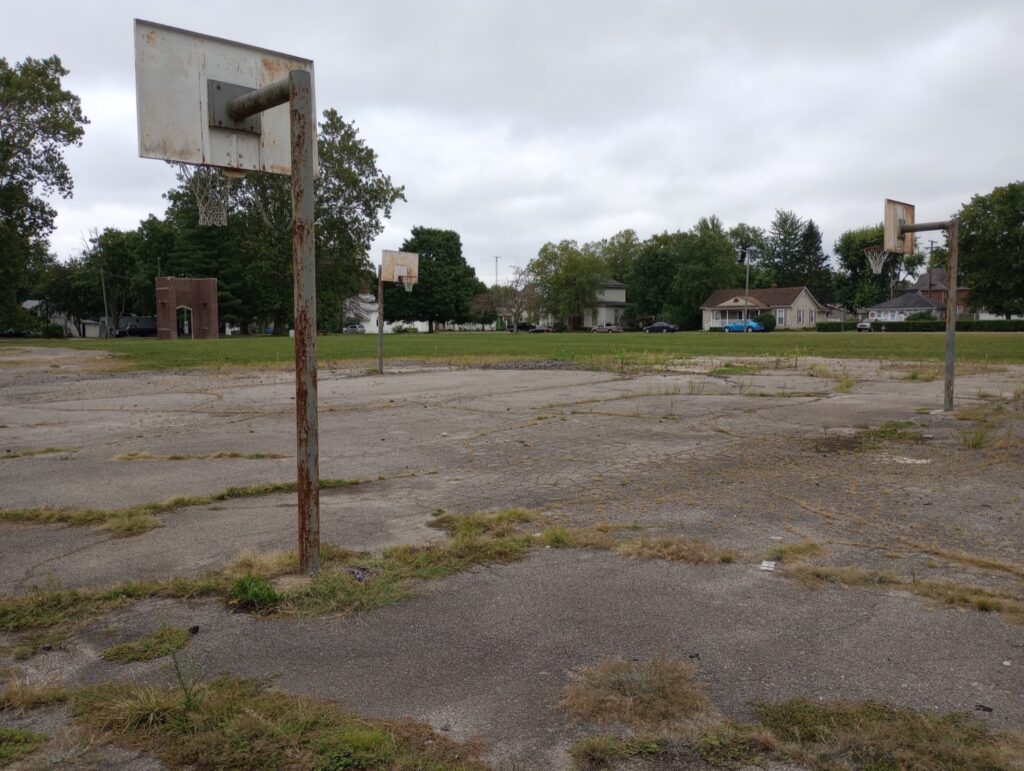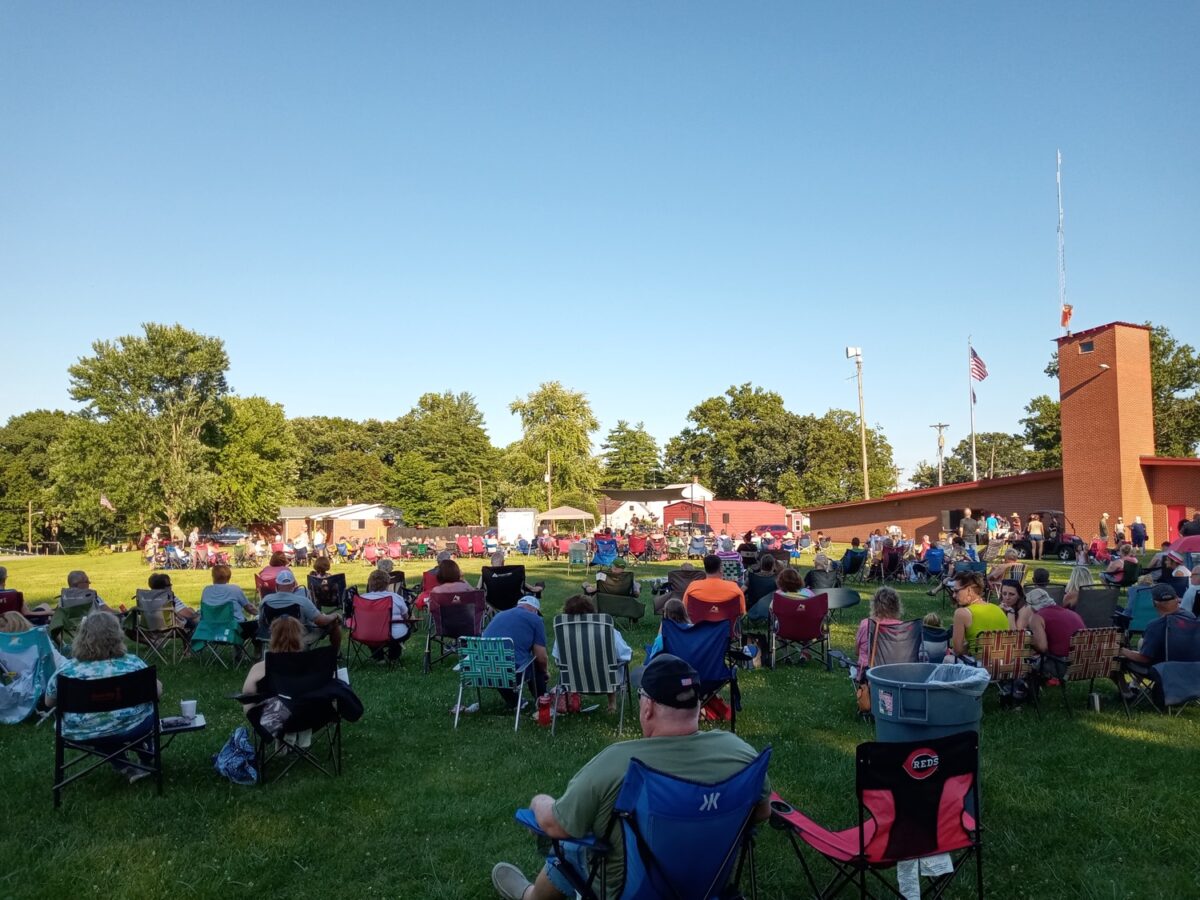Tireless effort brought Wayne County to this point of the Hoosier Enduring Legacy Program.
A rigorous application process earned the county a place in the third HELP cohort. More than 900 people provided input about what their communities need, and about 100 people served on committees identifying and prioritizing projects for the best uses of American Rescue Plan Act dollars.
That all resulted in a Strategic Investment Plan that includes $25,445,366 in investment. Now, the 33 identified projects must be completed before the end of 2026.
“We’ve just begun,” said Commissioner Jeff Plasterer after noting he’s pleased with the county’s progress so far. “The hard work starts now.”
Wayne County Council members and commissioners approved Sept. 6 the SIP developed with assistance from the Indiana Office of Community and Rural Affairs. The SIP allocates $5,893,253 of the county’s ARPA money. The county was required to commit 30% — or $3.83 million of its $12.78 million ARPA allotment — to the HELP program, but reserved up to $10 million that could be used.

The local HELP team will now seek SIP approval from the seven participating communities: Cambridge City, Dublin, East Germantown, Economy, Milton, Richmond and Spring Grove. Like the county, each community committed 30% of its ARPA money to projects identified through the HELP process. Communities spend their ARPA money on their projects, although Wayne County has money allocated not just to its 10 projects but to 17 other projects, as well.
The $25 million investment also includes $1 million in OCRA community development block grants, $530,000 from county EDIT money, $500,000 from the Economic Development Corporation of Wayne County’s consolidated EDIT money, $100,000 each from Sugar Creek Packing Co. and First Bank Richmond, $75,000 from the Wayne County Convention and Tourism Bureau, $16,000 from the Wayne County Foundation as well as private and match dollars.
Plasterer said he was pleased with the collaboration involved in HELP. Mary Walker, executive director of the Wayne County Convention and Tourism Bureau, chaired the quality of place pathway committee, and she noted during a presentation to council that HELP provides a once-in-a-lifetime opportunity.
“We strongly believe each of the projects listed before you in the Wayne County SIP plan serves as a multipronged, multifaceted approach to Wayne County’s request for future growth,” she said.
Wayne County
The county’s 10 projects involve $3,100,240 in county ARPA money and $500,000 from the county EDIT money as well as $440,000 from the EDC and other investment. The projescts which are estimated to cost $4,280,240 total, are:
- Support student engagement programs for all five county school districts that will enable students to design and implement their own community projects.
- Assist a Wayne County murals program during which artists will add 10 murals to the county’s current 85 murals, and community members will complete an 11th mural.
- Help build infrastructure for market-rate housing in unincorporated county areas.
- Expand child-care seats with a west-side Richmond location that will serve 60 to 70 children ages 0 to 4 from 6 a.m. to midnight Monday through Friday.
- Provide housing infrastructure for single-family homes on 28 lots of the Myers Estate and Wesleyan Heights subdivision in Cambridge City.
- Expand public Wi-Fi in East Germantown, Milton, Dublin, Cambridge City and Economy parks and Main Street corridors.
- Review emergency communication needs countywide to improve first responder radio coverage.
- Add emergency communications towers to improve radio coverage in areas identified by the review.
- Help eliminate blight throughout the county.
- Fund grant administration services for all HELP projects using community development block grant funding.
Richmond/Wayne County
Four projects are identified as shared between Richmond and Wayne County. The projects allocate $1,275,000 from the city’s ARPA money and another $500,000 of city funds, plus $2,475,000 in county ARPA money. The projects, which are estimated to cost $5,075,00 total, are:
- Support Main Street revitalization programs in Wayne County’s Main Street communities.
- Fund an animal welfare needs assessment study for the care of stray animals.
- Improve the Whitewater Gorge Park to become a recreation destination.
- Support creation of a Family Resource Center with partners Indiana Department of Child Services, Firefly Children and Family Services and Wayne County agencies. The center will be located in Richmond, but plans to purchase a van so services can be taken countywide.
An additional initiative identified is downtown market-rate apartments at the former Elder-Beerman site.
Richmond
Five city projects allocate $1,118,776 from the city’s ARPA money, which increases Richmond’s overall ARPA allocation to its 30% commitment of $2,393,776 from its $7.9 million ARPA distribution. The projects, which are estimated to cost $13,734,776 total, are:
- Mitigating neighborhood blight by increasing the Unsafe Building Commission’s capacity to address vacant and abandoned properties.
- Purchase a Ballistic Engineered Armored Response Counter Attack Truck (BearCat) rescue vehicle and body cameras for Richmond Police Department.
- Improve the E.G. Hill section of the Richmond Rose Garden in Glen Miller Park, including restoration of the fountain and ADA-compliant walkways.
- Supplement state funding for Townsend Townhomes, a 50-unit affordable apartment development on the former Nicholson School site at North 13th and North G streets.
- Expand public Wi-Fi in Starr Park, Mary Scott Park and Test Road Gorge Park.
An additional initiative is developing infrastructure for additional single-family housing.
Cambridge City
Two projects at Creitz Park receive a $119,000 allocation from the town’s $396,596 ARPA distribution. The projects, which are estimated to cost $750,000 total, are:
- Develop a gathering space and performance venue in Creitz Park behind the fire station, beginning with a performance stage, dance surface and adult gathering space.
- Upgrade playground equipment and accessibility within the park.
Additional initiatives include a new million-gallon elevated water tank for the Gateway Industrial Park and additional phases of developing Creitz Park.
Dublin
The town’s three projects allocate $50,787 from Dublin’s overall ARPA funding of $169,292 and another $55,000 in town funds. The projects, which are estimated to cost $849,800 total, are:
- Improve the playground surface at Wilson Park and install new playground equipment.
- As part of an overall sidewalk replacement, extend the South Milton Street sidewalk to Wilson Park and replace sidewalks on three other streets.
- Assist the town’s overall water system project with money for lower-priority items not included in a USDA grant, such as a security system, GIS system and replacement of meters and valves.
East Germantown
Three projects with a total cost estimated at $204,550 use the town’s entire ARPA distribution of $52,550, plus another $21,000. The projects are:
- Repair the basketball court and provide play equipment at the former Pershing Elementary School for the town’s children and children served by the local Boys & Girls Clubs of Wayne County unit.
- Replace sidewalks along U.S. 40.
- Replace the outdated control panel for the town’s sewer system.
Economy
The town’s two projects allocate $12,000 of its $39,658 ARPA allotment and another $5,000 of town money. The projects, which are estimated to cost $137,000 total, are:
- Update the town’s playground with new equipment, fence replacement, relining the basketball court and painting pickleball, hopscotch and four-square surfaces.
- Fix water-related problems in the 1930s wood-frame gymnasium that serves as the Perry Township Community Building.
Milton
Milton is spending $75,000 in addition to $31,000 from its ARPA allotment of $101,074 for three projects that are estimated to cost $339,000 total. The projects are:
- Repair the basketball court, install playground equipment and provide park benches at the former school site.
- Replace cracked and separated sidewalks to meet ADA standards.
- Upgrade the town sewer system, including controls and alarms at lift stations one and two and replacing the magnetic flow meter at lift station one.
An additional initiative is installing a retention pond to alleviate flooding concerns.
Spring Grove
The town’s lone project is an updated website that’s used for primary communication from the town. The project, with an estimated $75,000 cost, uses $65,000 from Spring Grove’s $72,972 ARPA distribution, plus $10,000 from the county.
A version of this article appeared in the September 13 2023 print edition of the Western Wayne News.

